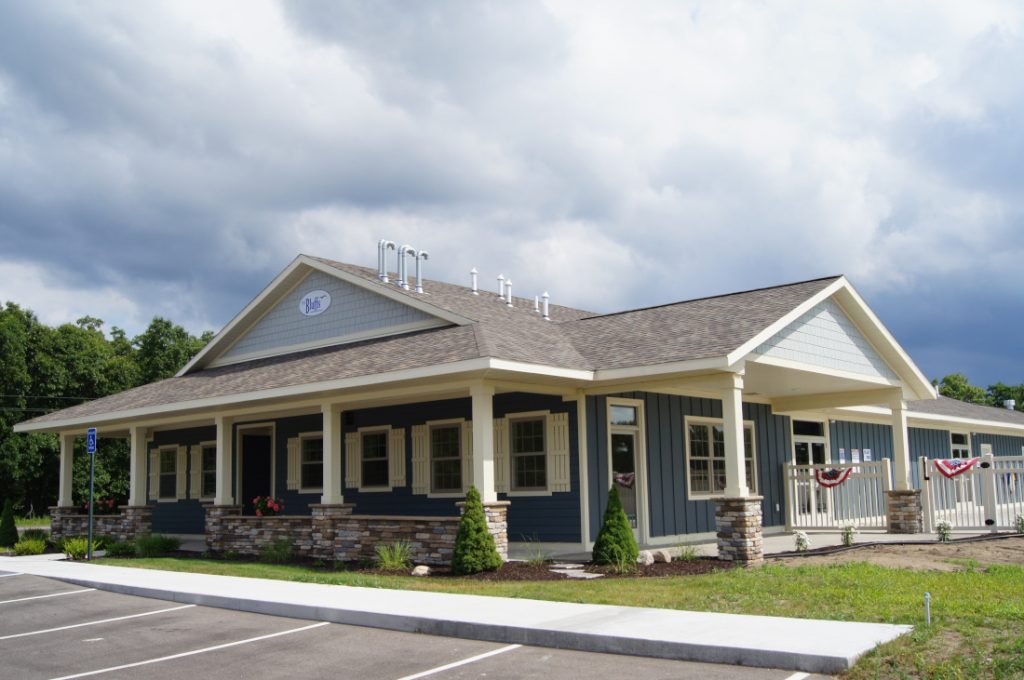Coronavirus Measures
(last updated at 5:00 p.m. EST May 11, 2021)
State-by-State News Roundup in the Manufactured Housing Industry
Updated Manufactured Housing News By State — Industry Response to and Updates about Coronavirus Measures
State orders to limit gatherings and reduce interaction as a measure against the spread of coronavirus are ending or are being stepped back in nearly all U.S. states. Stay-at-home orders encompassed much of the nation for more than two months, impacting the daily routine of eight in 10 of America’s 330 million people.
In many states, residents have been required to stay home, and engage in essential activities only, including short trips for groceries, fuel, and prescriptions.
Additionally, essential labor practices were implemented, as detailed by each state. Manufacturing in some states remained an essential labor practice, and in most cases, retail operations, including home centers, were closed and are endeavoring to safely reopen.
In response, the Federal government has approved a lineup of monetary relief and stimulus measures, the largest aid package ever. Additionally, Freddie Mac, Fannie Mae, and the FHA have barred evictions and foreclosures into June.

Arizona
Arizona joined the list of about 30 states to implement gathering restrictions with an executive order from the governor implementing a shelter-in-place mandate and restricting business activity. Gov. Ducey’s list of Arizona essential businesses include several provisions for manufacturing and the trades without specifying residential construction.
California
The state-wide order to stay-home and curb certain business activities includes exemptions for 16 business/industry types including home construction and inspection services. California Gov. Gavin Newsom’s stay-at-home order has no expiration. However, Newsom, Oregon Gov. Kate Brown and Washington Gov. Jay Inslee have agreed to collaborate toward an aligned reopening of the three states with regional considerations.
Colorado
The Montrose Press reports Matt Miles, developer of Midland Village in Grand Junction and Cimarron Creek and River Meadows in Montrose, won’t be collecting fees from the 1,000 homesites in the three communities. With each resident not paying an average of $500 per month, Miles says that he hopes his move will pump close to a half-million dollars into the local economies. Each community has a broad demographic containing about 60% adults with no children and 40% families.
Connecticut
The state has ordered all non-essential businesses to close and has asked residents to stay home. The governor has a list of essential businesses, which includes home construction. The governors of Connecticut, Delaware, Massachusetts, New Jersey, New York, Pennsylvania, and Rhode Island have entered an agreement for a collaborative reopening of the respective economies.
Delaware
The state of Delaware is under executive order for residents and most workers to stay home. On its list of essential Delaware businesses, residential construction is noted as an essential area that will remain open and operating. Delaware joined the coalition of seven northeast states that will reopen aspects of the economies in a planned effort. Delaware remains among the final three states, along with New Jersey and Illinois, under full lockdown.
Florida
Florida Gov. Ron DeSantis in early May 2021 lifted all statewide mask mandates and has loosened restrictions on public gatherings and other COVID-19 restrictions. Florida had initiated a mandatory stay-at-home order that ran through April 2020. The state closed entertainment venues and prohibited large gatherings. The order allowed for essential trips from home and the operation of essential businesses, which included construction and manufacturing that supports critical supply chains.
The state economy began re-opening May 4, 2020, with continued restrictions in Miami-Dade and Palm counties, where a majority of cases have been documented. Openings include retail, entertainment venues, and beaches.
Miami-Dade County Mayor Carlos Gimenez issued a stay-at-home order a week prior to the statewide action.
On May 11, 2021, Florida Department of Children and Families launched OUR Florida, or Opportunities for Utilities and Rental Assistance. The program benefits Florida families and landlords facing economic hardship due to the coronavirus pandemic.
The Florida Manufactured Housing Association said the OUR Florida program will distribute more than $800 million in emergency rental assistance funds. Earlier, the U.S. Department of the Treasury issued $1.4 billion in emergency rental assistance to Florida, with approximately $529 million distributed directly by local governments with populations over 200,000. The remaining funds will be disbursed by DCF through the OUR Florida program.
The OUR Florida program accepts applications from tenants, including manufactured home residents who pay lot rent, and landlords in need of aid, regardless of their city of residence. Learn more about eligibility, required documentation, and how to apply at OURFlorida.com.
The program focuses on low-income renters and will prioritize renters with income at or below 50% Area Median Income and/or families who have experienced unemployment within the past 90 days.
Floridians who rent homes, including mobile and/or manufactured home community lots are eligible if they:
- Earn an income at or below 80% of the AMI; and
- Have qualified for unemployment, experienced a loss of income, incurred significant costs of faced financial hardships due to the recent public health emergency; and
- Are at risk of losing their home or are living in unstable or unhealthy conditions.
Georgia
The state of Georgia had been under stay-at-home orders since April 1 and was among the first to announce a slow re-opening of the economy. Much of the state’s residential homebuilding activities and trades disrupted by the orders are beginning to re-emerge.
Illinois
Illinois is among the final states remaining under full lockdown (along with N.J. and Delaware) with residents asked to stay home. Work activity is limited to essential businesses, which includes residential construction and associated trades. The initial Illinois executive order for April was extended to May 29.
IMHA Board of Directors has decided to reschedule the Annual Conference and Membership Meeting from April 22-23 until Sept. 16-17, 2020 and will conduct the meeting on a virtual platfom.
Indiana
Indiana has reopened a large portion of its business operations, including retail. The state issued a stay-at-home order in March and April with exemptions for essential businesses, including Indiana’s construction and critical trades.
Ron Breymier, executive director for the Indiana Manufactured Housing Association said the organization has decided to suspend a hands-on continuing education training session for manufactured home licensed installers. The session was scheduled for April 22, 2020. Attempts are being made to reschedule for later in the year. The association also is working with state officials in an effort to classify manufactured home manufacturers, suppliers, and transporters/installers as positions of critical operation in case there is an effort to shut down production. State lawmakers are working on language requiring anyone who sells more than three manufactured homes to become licensed dealers whereas current law requires licensure if more than 12 manufactured homes are sold.
Iowa
Iowa Gov. Kim Reynolds suspended property tax collection and evictions, and the state is relaxing or extending deadlines on regulations in reaction to coronavirus outbreak.
The temporary changes come through a state public health emergency declaration that went into effect immediately. Regulatory changes include collection of property taxes and related penalties and interest.
The order also puts a hold on many evictions for renters and leaseholders in the state. It does not apply to non-lease arrangements and “emergency situations allowed by law”.
Iowa had no state-at-home order, but restrictions on non-essential from the declaration are being lifted on a county-by-county basis.
Kentucky
Kentucky has issued an order to halt non-essential business activity, with provisions made for residential construction. This is not a stay-home order. Gov. Andy Beshear said the state is taking measures to bring back business services during the month of May.
Louisiana
The state of Louisiana has been added to the list of state under mandatory stay-at-home, or shelter-in-place orders. All non-essential businesses have been ordered to cease operation. The original order has been extended to May 15.
Maryland
Maryland has announced an executive order for non-essential businesses to close, and to curb large gatherings. While the order is not a “shelter-in-place” or stay-at-home order, it asks residents to stay home and limits business activities to those deemed essential. Gov. Larry Hogan on April 24 laid out a plan to reopen the Maryland economy.
Massachusetts
The governor of Massachusetts has ordered the closure of non-essential businesses, which includes operating provisions for home building and the trades. This is not a stay-home order for residents.
Michigan
Michigan was under a state order from the governor for residents to stay home and venture out for essential services only. The order had been for the month of April and was extended twice to May 28 with a staged re-entry for business operations, including the expansion of construction and the trades. Michigan reopened its economy with retail by- appointment and modified social gathering restrictions effective May 21.
All non-essential businesses had been closed through May 7, including some home construction and associated trades and services. Gov. Gretchen Whitmer in late April announced the gradual re-opening of the economy during continued social distancing protocols.
Skyline Champion Corporation, from Champion Homes headquarters in Troy, Mich., had announced reduced production in facilities throughout the U.S. in states where mandatory lock-down has been implemented.
“Skyline Champion is focused on the safety and well-being of our employees, distributors and customers we serve, and the communities in which we operate, while simultaneously ensuring business continuity across our operations,” President and Chief Executive Officer Mark Yost said. “We are well-positioned to navigate the uncertainty of the current environment due to our strong liquidity position, highly flexible, low cash-cost operating model, as well as our diversified customer channels and geographic mix.”
Minnesota
MMHA Spring Conferences June 2-3 has been canceled. MMHA staff is working remotely, but will remain available to assist members with their needs. The governor has issued a stay at home order for all residents and has closed the state’s non-essential businesses, with operating provisions made for residential construction and the building trades. Gov. Tim Walz said the state has initiated plans to activate aspects of the industrial, manufacturing, and office sectors.
Mississippi
The 2020 Tunica Show has been canceled and the annual event will return in 2021. The state of Mississippi on March 17, 2020, declared a State of Emergency in response to measures against the spread of the coronavirus. A shelter-in-place order expired on April 27.
“Tim Fagerburg, with the State Fire Marshal’s office spoke to MMHA retailers on a conference call regarding the department’s activity and structure during this time,” Mississippi Manufactured Housing Association Executive Director Jennifer Hall said. “He stated that the seven deputy inspectors with the department will continue to work from their homes and they conduct home installation inspections. Mr. Fagerburg stated that he is working from home as instructed by the Insurance Commissioner and going into the office three times a week and processing the property locators to the inspectors. He asked that installers and retailers please be patient as we work through this difficult period.
“The Governor declared a State of Emergency and he has closed all state agencies and asked each department head to only allow employees to work that are essential. Most of these employees are working from home. Retailers should contact each of the county or city permit offices and find out how they are conducting business,” Hall said. “Some permit offices are only allowing one person in the office at a time. Some offices are requiring folks to call and make appointments to follow the 10-person suggested rule by the CDC and the State Health Officer. These are unique and challenging times that we are dealing with on a day to day basis. MMHA encourages each of you to take the necessary precautions to create a safe working environment for your employees. Also please protect your families and loved ones during this most difficult time.”
The state Health Department also has recommended and asked that all Mississippi restaurants and bars halt indoor food and drink service to the public.
Nebraska
The state of Nebraska is in the midst of a comprehensive but regionalized reopening of businesses in the state.
New Jersey
The state list of essential businesses that can continue to operate includes construction. However, the state has asked for necessary project only, and the most minimal staffing possible for those essential tasks. Gov. Phil Murphy entered agreement with governors from Connecticut, Delaware, Massachusetts, New York, Pennsylvania, and Rhode Island for a collaborative reopening of the respective economies. It remains one of the final three states, along with Illinois and Delaware, to remain on full lockdown.
New Mexico
New Mexico ordered residents to stay at home and non-essential businesses to close. The mandate that was extended to May 15 included measures against mass gatherings. Residential construction was deemed an essential business in the state. Increased home construction, repair, sales and associated will resume when the order ends. The state has announced a rationalized reopening of its economy.
New York
The state of New York is engaging in a regionalized reopening effort in conjunction with neighboring states, though the city likely will remained closed or limited as long as any of the U.S. regional metros. Gov. Andrew Cuomo has ordered all non-essential workers in New York to stay home. “What I do will affect you, and what you do will affect me… We need everyone to be safe otherwise no one can be safe,” he said.
The list of essential businesses published by the state of New York approves construction, including skilled trades and “firms and professionals for essential infrastructure or for emergency repair and safety purposes”.
Bob Capenos, the executive director for the New York Housing Association, said the association’s meeting and training courses have been postponed at least two months. A memo from state courts puts a hold on eviction notices and proceedings until further notice. In addition, a presentation on the new tax filing system for community owners has been posted.
The governors of Connecticut, Delaware, Massachusetts, New Jersey, New York, Pennsylvania, and Rhode Island have entered an agreement for a collaborative reopening of the respective economies.
Nevada
The Manufactured Housing Institute postponed the Congress and Expo, which was to be held April 6-8 at the MGM in Las Vegas. MHI currently is attempting to reschedule the event for dates no earlier than May. The state of Nevada reopened its economy on May 9, but bars and casinos remained closed. Additionally, residents were advised to stay home.
Ohio
The state of Ohio has listed manufacturing, including construction, and general construction as essential business activities under the executive order to shutter all non-essential businesses.
Tim Williams, executive director for the Ohio Manufactured Homes Association said a member group, Greenlawn Communities, has reduced lot rent to residents by 50% for the month of April. Greenlawn operates eight communities with a total of 1,400 homesites, as well as a retail location, in the state of Ohio.
Oklahoma
The state of Oklahoma has ordered gatherings be limited to 10 or fewer people, event spaces closed, and has warned older residents and residents with compromised immune systems to shelter in place.
Oregon
Gov. Kate Brown issued an executive order for Oregonians to stay home for anything other than essential services, and asked that businesses close. The order includes provisions for essential businesses including construction, as needed, with the caveat that workers maintain social distancing standards. Oregon has aligned with California and Washington to coordinate reopening efforts, which are being conducted on a localized basis through the three states.
Pennsylvania
Residents and most workers in the state of Pennsylvania are under executive order to stay home. Only essential businesses are allowed to operate, which excludes residential construction other than emergency work on residential buildings. The state of Pennsylvania has several home building facilities that are likely to be significantly impacted by the action. The state on May 7 began a three-phase reopening of its economy, with retail sales operations opening on a county-by-county basis.
Tennessee
Tennessee has reopened its economy with new social distancing guidelines in effect following several weeks of restrictions.
Texas
The stay-at-home order in Texas lapsed in late April and all aspects of the economy have been re-opened with enhanced social distancing protocols.
Washington
Washington has aligned with California and Oregon to coordinate reopening efforts, which are being conducted on a localized basis through the three states.
West Virginia
The state of West Virginia has issued a stay-at-home order. Its list of essential businesses has yet to be released but should be available on the W.V. governor’s page shortly.
Wisconsin
Amy Bliss with the Wisconsin Housing Alliance sent out a statement about social gatherings in manufactured home communities.
“I’ve been asked for some guidance to community owners who have community centers where their residents gather,” she said. “While there is no one perfect answer, the Wisconsin Department of Health Services has some questions to ask yourself about whether to cancel events or not. For those that are dealing with an at-risk elderly population, it is advisable to be cautious.”
WDHS Suggestions
Below are the questions DHS suggests you might ask yourself when making a determination on gatherings in your community spaces:
- The following will help you consider the importance of your event as weighed against the need to protect others from the spread of COVID-19.
- Critical service – Does your event or service provide essential services (such as education or health care) to community residents?
- Is it necessary to the public? What negative consequences would occur if this event was not held?
- Community situation – Is there known sustained community transmission in the host community? Are other organizations in the community canceling smaller events?
- The risk to participants – Are people at risk for serious illness from COVID-19 participating?
- Will people be in close physical proximity?
- How long will people be in contact with each other?
Take a look at some early positive signs regarding April rent payments in manufactured home communities, and check MHInsider for all of the updated news on manufactured housing industry events, meetings, and conferences.










